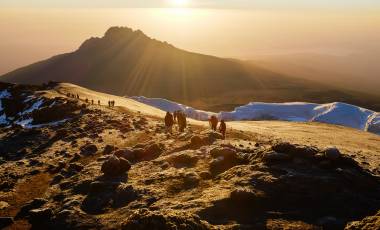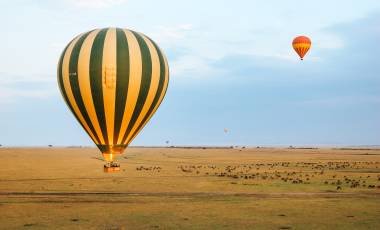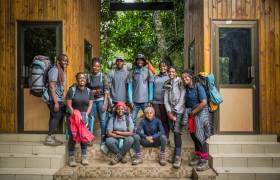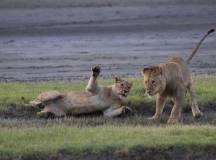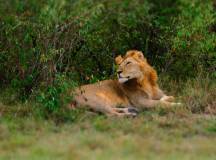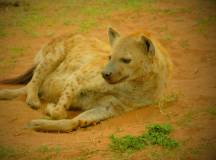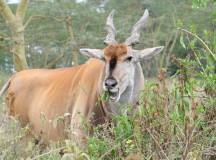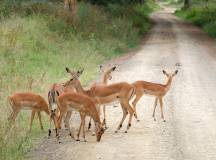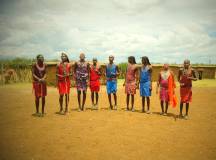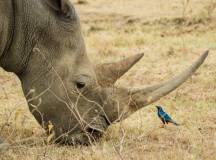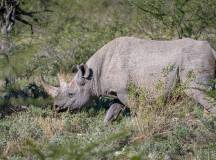Tanzania is Africa at its most iconic – the Serengeti plains, the spice island of Zanzibar and mighty Kilimanjaro

Tanzania Holidays
Activities in Tanzania
Our Top Destinations in Tanzania
Tanzania Holidays
FAQs on our Tanzania Tours
Tanzania has a tropical climate, though you should be aware that temperatures can be variable depending on the region you visit. Coastal temperatures and islands such as Zanzibar tend to have an average range of 27°C-29°C year-round. Further inland, the temperature varies between 20°C and 30°C.
There are two monsoon seasons in Tanzania. The “long rains” that last from March-May and the “short rains” come in November-December. The short rains tend to be unpredictable with their timing, and in Northern Tanzania they can even start in October. These rains are intermittent and shouldn’t interfere too much with your plans. The long rains are heavier and bring about the wettest time of year for Tanzania. At this time, it rains almost every day in most places. During the long rains, the climate can feel quite humid.
If you’re climbing Kilimanjaro with us, you can check the weather forecast for different altitudes to get an idea of what to expect. As with any other mountain, temperatures drop the higher you go, and it’s common to find snow at the top, especially between November-March.
To travel at the warmest time of the year, you’d be looking at a Tanzania holiday between December-March. This is perfect for sun worshippers who want to get away from the British winter. But if you prefer to stay cool, you may want to travel in June or July, when the temperatures are at their lowest (low/mid 20s).
If you’re climbing Kilimanjaro, take into consideration the timing of the rainy seasons (March-May and November-December), as this can make the tracks muddy and provides fewer clear skies for your photographs. The dry season months that coincide with European and North American summertime are the most popular months to climb the mountain, though January and February also offer clear, sunny skies.
Zanzibar is also subject to the two rainy seasons, with the long rainy season being the main one that might affect your experience. Temperatures are very warm there all year-round though.
If you fly from the UK to Tanzania, you will probably have a layover along the way. From London, this flight can take nine hours, though it may be longer if you are travelling from another region. Check out Skyscanner to get a better idea of the flight times to expect from your local airport.
Tanzania is culturally conservative, so keep your knees and shoulders covered when in public, regardless of your gender. Loose-fitting clothes in a fabric that won’t overheat you, such as linen, silk, and cotton, will be your friends.
The Tanzanian people are generally accepting of female tourists who wear trousers if they’re baggy and don’t hug the figure too much.
If you visit Zanzibar, chances are, you may want to spend time on the beach. It’s a particularly conservative, Islamic part of Tanzania and you’ll need to be careful not to give offence with your clothing choices during Ramadan. While you can usually wear your standard beachwear outfit of choice to swim in (though the more it covers, the less likely you are to encounter difficulties), you’ll need to cover up as soon as you hit the streets and shops again. Even on the beach itself, women are advised to wear a sarong or kaftan.
If you’re a nature-lover, you’re sure to have the time of your life in Tanzania. The country hosts over one thousand bird species and nine Endemic Bird Areas (areas where birds that can only be found in Tanzania live). Cheetah, elephants, and chimpanzee all live in Tanzania too. If you take a Tanzania trip with us that includes the Ngorongoro Crater, the world’s largest caldera, you’ll have the opportunity to see dense populations of zebra, wildebeest, and even the endangered black rhino.
If you walk the Rongai Route up Mount Kilimanjaro with us but you’d like to spend some extra time afterwards exploring Tanzania’s wildlife, you can even book a safari extension that will take you to the Ngorongoro Crater, Tarangire National Park, and Lake Manyara National Park.
The cost of your Tanzania tour will depend on which package you select and whether you opt for us to arrange your flights as well. Without flights included, you can expect to pay anything from £3,299-to 3,849.

Expert Blog Entries
The Adventure Begins Here
Get regular inspiration straight to your inbox from Exodus’ experts.


